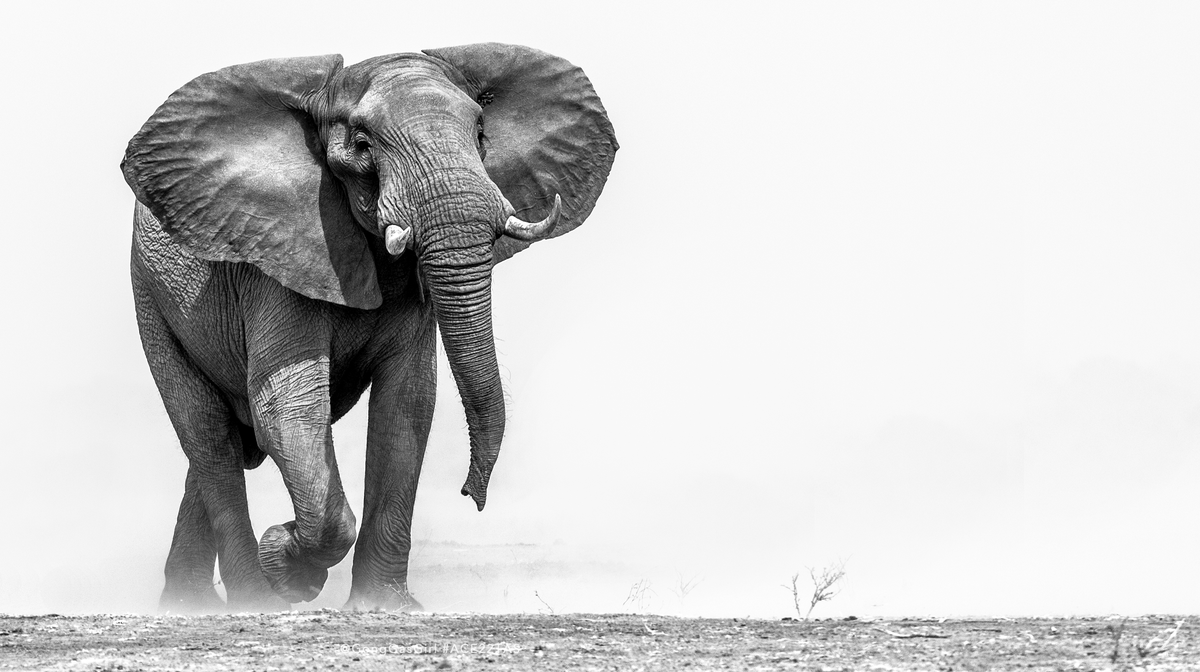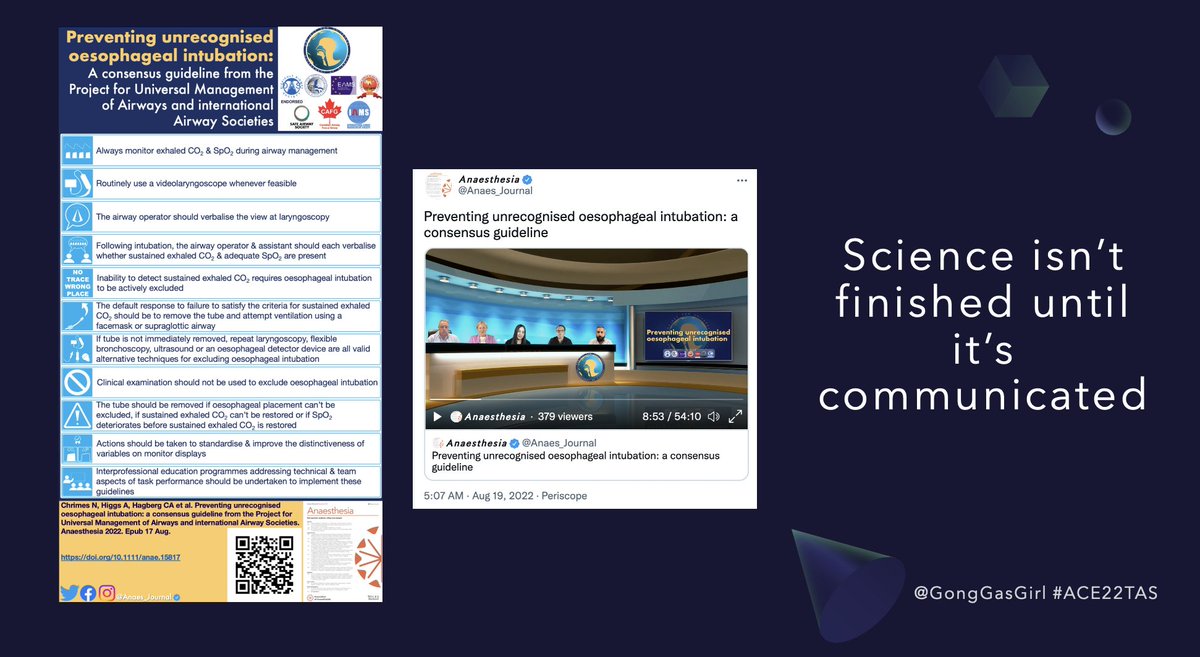
Social Media for Anaesthetists.
Talk delivered at the beautiful Josef Chromy Winery in Launceston, Tasmania, Australia.
#ACE22TAS
Talk delivered at the beautiful Josef Chromy Winery in Launceston, Tasmania, Australia.
#ACE22TAS

Social media is enormous no matter how you look at it. Billions in ad revenue, millions of tweets every day, hours of our time on platforms. Pervasive in our personal and professional lives. Can't separate ourselves from it now. 

(In the break one delegate proudly announced that they were in the minority - no social media at all.
I asked them if on WhatsApp .... yes but that's not social media they said .... 😬 .... we're on it, and we don't even know it sometimes ...)
I asked them if on WhatsApp .... yes but that's not social media they said .... 😬 .... we're on it, and we don't even know it sometimes ...)
Most people are surprised to learn that the average adult internet user spends nearly 2 hours every day on various platforms. This is increasing every year.
This is where our patients, communities, colleagues, decision makers are. We can't pretend it's not happening.
This is where our patients, communities, colleagues, decision makers are. We can't pretend it's not happening.

Industry spends a huge amount of energy analysing metrics around social media use. They use the data to target their efforts in order to maximise cost-benefit. Even though a slightly older demographic, Tasmanians check social media many times a day, just like everyone else. 

So why am I on social media?
So many reasons.
Initially started with small children and felt academically isolated. It was a way to keep up with emerging developments. Smart people talking about neat things helps me take care of our patients better.
So many reasons.
Initially started with small children and felt academically isolated. It was a way to keep up with emerging developments. Smart people talking about neat things helps me take care of our patients better.

Many reasons for the normal clinical anaesthetist like me to use social media.Don't need to do it any particular way, or use any particular platform. Need to do it in a way that suits individuals, where they find their tribe. It is part of our job to advocate for our communities. 

Decision makers are scanning social media platforms, carefully listening to what ordinary people like us are saying. We can also educate others around our area of expertise, learn so much from others in our specialty and other healthcare workers and patients around the world.
Connections are made online for many. Some who are isolated geographically, some with rare diseases, some who want to learn about how others manage the same problem. Despite it being a cesspit, there are folk here who generously share their expertise.
As @inquisitiveGyn says: the most dangerous phrase in the English language is 'we've always done it this way'. Change has already happened, we need to embrace it. Actually kind of quaint to talk about SoMe now, almost as sweet as waiting at the letterbox for the latest journal. 

Probably this talk really should have been "Metaverse for the Anaesthetist" ... whatever that will look like. We need to continuously adapt and change and move forward. Our communication needs to be audience not speaker focussed, meet them where they are.
No social media talk complete without talking about the dangers. (In fact one delegate said I didn't spend long enough talking about the bad sides, but any trainee will tell you they are constantly bombarded with abstinence messaging around SoMe). 

We must follow the rules of our employer, societies and colleges, regulators etc. Every organisation has a slightly different take on it, but in essence we should behave online much like we would in real life. Most importantly not breaching patient confidentiality.
Interestingly, organisations are evolving.
Policies have moved from an abstinence approach, to recognising the beneficial role social media can play in our work when used respectfully.
Recent refresh of @ANZCA social media policy here:
anzca.edu.au/getattachment/…
Policies have moved from an abstinence approach, to recognising the beneficial role social media can play in our work when used respectfully.
Recent refresh of @ANZCA social media policy here:
anzca.edu.au/getattachment/…

I then took the audience through a few examples of material contributed by experts in the days leading up to my talk.
Here's @amit_pawa sharing the new #stopbeforeyoublock resource. Then a thread where folk around the world discuss their implementation, to decrease risk of this.
Here's @amit_pawa sharing the new #stopbeforeyoublock resource. Then a thread where folk around the world discuss their implementation, to decrease risk of this.

Constantly in admiration of those who post free high quality educational resources for all of us to consume. This is the incredible #JanuAIRWAY from @dastrainees
(BTW I got a laugh from the crowd for JANU- AIRWAY ... maybe it was me accent?).
(BTW I got a laugh from the crowd for JANU- AIRWAY ... maybe it was me accent?).

The community here lifts each other up. Here's wise @jeffgadsden giving kudos to @Vapourologist and team for the resource. I agree with Jeff that I too occasionally dust off Miller but you can't beat that @dastrainees crowd for easily consumable accurate info at your fingertips. 

Sometimes science is wrong/evolving. We have a responsibility to critically appraise all science. It's hard enough for us to keep up with the data, we need to do all we can to disseminate good work so our patients can have access to the best info so that they can make decisions. 

SoMe full of advocacy by healthcare workers. Here is @tra2sh1 member AP showing off his fabulous theatre hat, and this week nurses in Tasmania were taking industrial action. We need happy healthy people to have a thriving health service. We must look after each other. 

Perhaps most importantly, online platforms afford us the opportunity to speak directly to our patients. Superstar Dr Edwards collaborates with patients to produce online resources to give accurate information. She is a trusted voice, and now often called upon by mainstream media. 

Science isn't finished until it's communicated.
@Anaes_Journal are masters here. Really important new paper this week about airway guidelines. Shouldn't sit unread behind a paywall. Here it is free for all, has an accompanying infographic, and a live broadcast with authors.
@Anaes_Journal are masters here. Really important new paper this week about airway guidelines. Shouldn't sit unread behind a paywall. Here it is free for all, has an accompanying infographic, and a live broadcast with authors.

With 1 - 1.5 million peer reviewed papers every year, who is reading all this new science?
Interesting note with the rise of online publications is that publishers will have this data ... they will know which manuscripts are getting opened, I wonder how many are never read?
Interesting note with the rise of online publications is that publishers will have this data ... they will know which manuscripts are getting opened, I wonder how many are never read?
In March 2020 with the plague bearing down and minimal attempts to gain control, many of us were worried. Here local anaesthetist @reid180 was brave, and paid for an open letter in the local paper. It urges action and was shared on SoMe. Two days later the premier rang him ... 

This letter was so interesting to me because that same week I wrote a blog for @Anaes_Journal with very similar themes. Shortly after, the state governments started to act with border closures etc.
It is hard to know in the end what causes governments to act, however it is clear that our voices matter, and we should not be afraid to speak when something isn't right.
'Doctors have a responsibility to protect and promote the health of individuals and the community.' AHPRA
'Doctors have a responsibility to protect and promote the health of individuals and the community.' AHPRA
As I neared the end of my talk, I let the audience know that we had been discussing online the history of anaesthesia in Australia, and in particular William Russ Pugh, who gave the first anaesthetic in Australia (and perhaps the Southern Hemisphere). 

And of course it didn't take long until Twitter let me know some things about Pugh ....
The famous house is for sale! (I went to visit it, so beautiful)
Loadsman's AIC has a paper disputing Pugh as the first (how the heck am I going to say that to a Launceston audience?)
In the end Chris Ball soothed me by saying both Balisaro and Pugh did an amazing thing..
Loadsman's AIC has a paper disputing Pugh as the first (how the heck am I going to say that to a Launceston audience?)
In the end Chris Ball soothed me by saying both Balisaro and Pugh did an amazing thing..

As it was, he read about ether a few months after it happened, went straight to his workshop and created the kid, gave it to a whole list of patients 9 days later, and wrote it up that day...
Pugh's legacy if social media had been around?
Well definitely he would have tweeted about it. Maybe a live FB broadcast? A Tik-Tok? Certainly would have got around to it faster.
Well definitely he would have tweeted about it. Maybe a live FB broadcast? A Tik-Tok? Certainly would have got around to it faster.
But would he have lasted? He had 17 law suits against him at one stage. No question he was a polarising character. Recently Tasmania voted to remove a statue in Hobart for undesirable qualities ... maybe Pugh was a bit of a jerk? Maybe SoMe would have exposed him?
Would social media have cancelled William Russ Pugh?
With that existential crisis burning around in my brain, we had a great discussion around current social media controversies, the balance between free speech, advocating for what's right, how to get started on SoMe, the impact on the learner.
It went OK!
Fin.
It went OK!
Fin.

• • •
Missing some Tweet in this thread? You can try to
force a refresh












